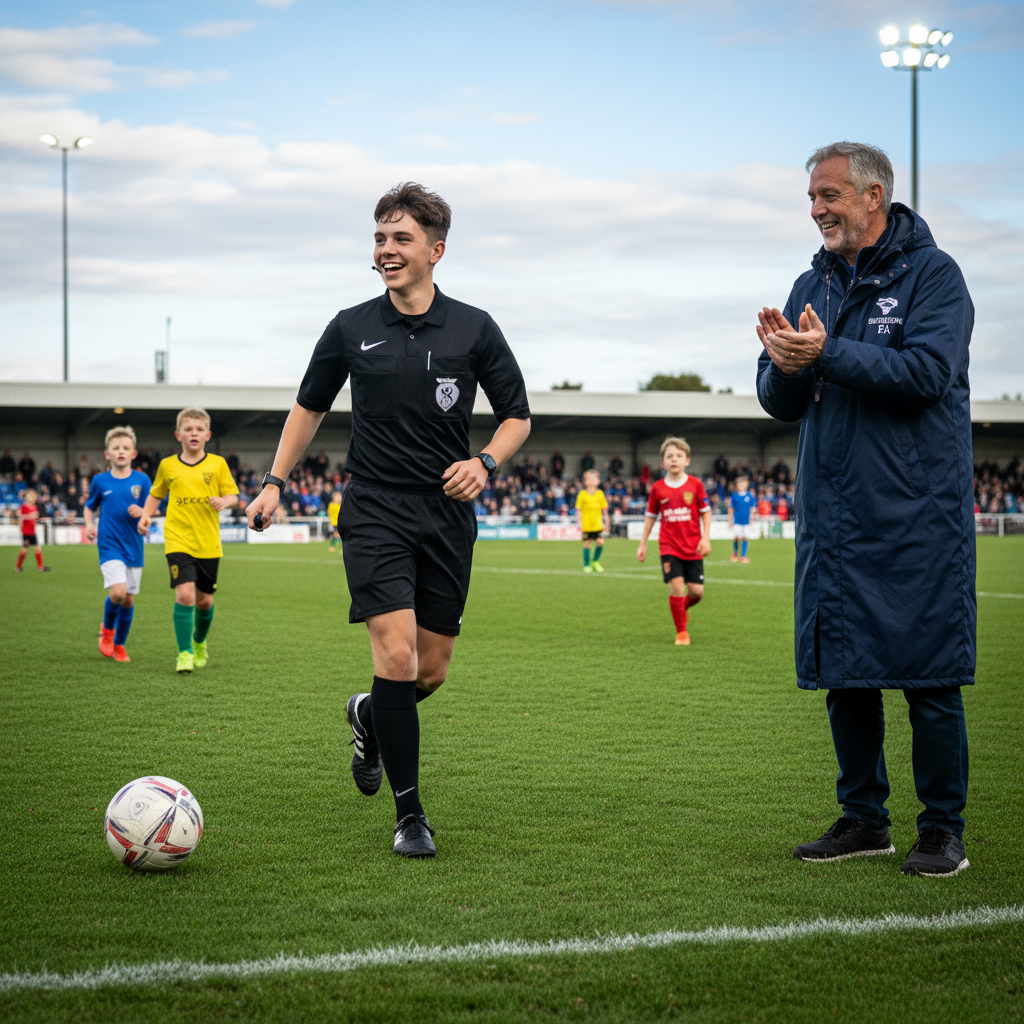It doesn’t matter whether you’re supporting someone in action at the Bernebeu Stadium, home of Real Madrid, or at your local park. Your role remains the same.
You don’t have to be perfect, but you should show your colleague how it’s done. Perhaps he or she already knows you having played in a match you refereed. Perhaps you have a good reputation spread via word of mouth. Here are a few tips for success in mentoring.

Be a role model yourself
Have a conversation with your mentee in advance if possible. On the day, be there at the agreed time and look the part. Have everything you would need for the game if you were refereeing it yourself instead of guiding someone else ‘in the middle.’ Treat your mentee as you would like to be treated.
Let them learn
Once you’ve given him or her your instructions, let your colleague get on with the game. Keep a low profile and don’t interfere with their decisions. By all means make eye contact and smile or give the thumbs up occasionally. Don’t say or do anything that undermines your colleague’s authority and definitely don’t shout!

Keep It Short and Simple
Don’t overload your mentee with information. Keep your instructions short and simple. Give your mentee no more than two or three key points or suggestions to take into today’s game. Your post-match report should also concentrate on these issues.
Keep it positive and constructive
Smile! Applaud your mentee off the pitch. Have a chat about the game once he or she has shaken hands with everyone, spoken to both managers and collected their match fee.
Highlight some things your mentee did well and give specific examples from today’s game. Choose one of these as your main ‘development point’ for future matches. Ask your mentee for their ideas on what went well and what they think they could do differently or better. Involving them in this way gives them more ‘ownership’ of the discussion and encourages them to think about their performance.

Be Patient
Don’t expect your mentee to be a new Pierluigi Collina or Michael Oliver from day one. Give your mentee all the time he or she needs.
Some people take to refereeing like ducks to water; they more or less know what they’re doing and don’t need much prompting from you. Others might find things difficult at first, whether it’s adjusting to a first leadership role, expressing themselves verbally or with the whistle or just getting through all the pre-match formalities.
Be available for consultation
Let your colleague know he or she can contact you any time from now on to ask for advice.

Leave a Reply